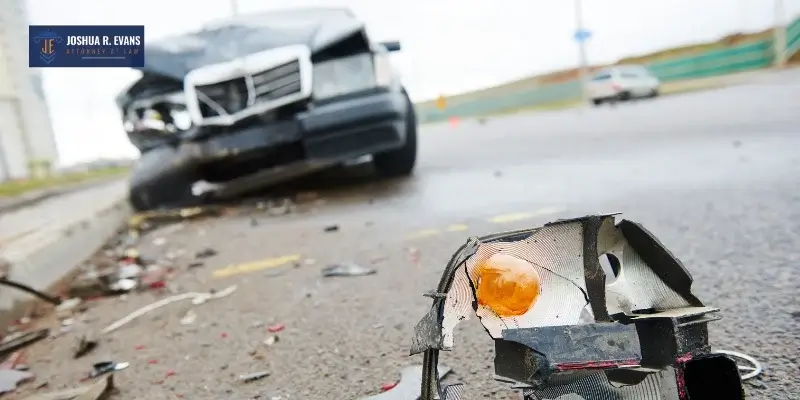have questions?
get a free case review
” * ” indicates required fields
"*" indicates required fields

A car accident can be a mild irritation during your day, a catastrophic nightmare that changes your life, or something in between. It really depends on the details of your accident. When you are involved in a car accident, the decision to seek compensatory damages from the party responsible for causing the incident can be a big one to make. A good car accident lawyer can help you reach that decision. When considering your options, you may wonder, “Is Illinois a no-fault state for car accidents?”
No, Illinois is not a no-fault state for car accidents but rather a fault state. The fault-based system, also known as a tort system, is in place to make sure the driver who is found to be at fault for the accident is the one who is charged with compensating the other party. In addition, Illinois uses comparative negligence, which could impact the amount you are seeking in damages.
Under comparative negligence, you can still pursue damages from a driver who caused your accident, provided you don’t share too much of the blame yourself. If you are found to be partially at fault for the accident, you can still pursue a percentage in damages unless you are found to be more than halfway responsible for the accident. In that case, you will likely be unable to pursue compensation in any way.
To pursue legal action against a driver who caused your accident, you must first determine who exactly was at fault for the accident in question. Discovering who was at fault can be difficult, but it is wholly necessary. For fault to be determined in a car accident, Illinois requires four essential elements:
If you decide to pursue legal action against the party responsible for your accident, it is important to your case that you follow the statute of limitations for car accident claims in Illinois, which is generally two years from the date of your accident or when you discovered your injury.
The state will give you two years to:
If you cannot file your claim before two years have passed, there is a decent chance that your claim may be dismissed, and you won’t be able to pursue legal damages at all. Building a strong case can take a lot of time, so you should start soon after your accident by consulting an attorney. If you are worried that you don’t have a strong enough case, you should bring what you have to your car accident lawyer and see what they can determine.
A: Fault is determined in a car accident in Illinois by an insurance adjuster, who will review the details of the accident. The adjuster will assess the level of negligence that each driver had in the accident by using a modified comparative negligence system. Fault might be attributed to multiple parties. The adjuster will determine this negligence using the police report, witness statements, video footage, and damage assessments.
A: No, you are not legally required to hire a lawyer for your car accident case. If you want to pursue your case on your own, you are allowed to do so. Still, it is recommended that you hire one anyway. Having someone on your side who understands the law and can give you informed advice can only boost your chances of succeeding with your case. They can also maximize the value of your claim by making sure it includes the totality of the damages you have suffered.
A: The car accident law in Illinois focuses mainly on comparative negligence. Comparative negligence essentially means that more than one person can be found to be at fault for the same accident. As long as you are found to be less than 50% responsible for the accident, you can still pursue some amount in damages from the other party. Your total settlement amount will be reduced by the percentage of fault you have in the accident.
A: If someone who is not on your insurance crashes your car in Illinois, you could still be found liable for the damages if you knowingly loaned somebody your vehicle. There is a good chance that your insurance company will cover the damages anyway, but your premiums may increase following the accident. If the damages are significant, you may want to consider taking legal action against the driver.
At Joshua R. Evans, Attorney at Law, we can recoup damages on your behalf from your car accident case. Contact us today to schedule a consultation with our law firm.
” * ” indicates required fields
"*" indicates required fields